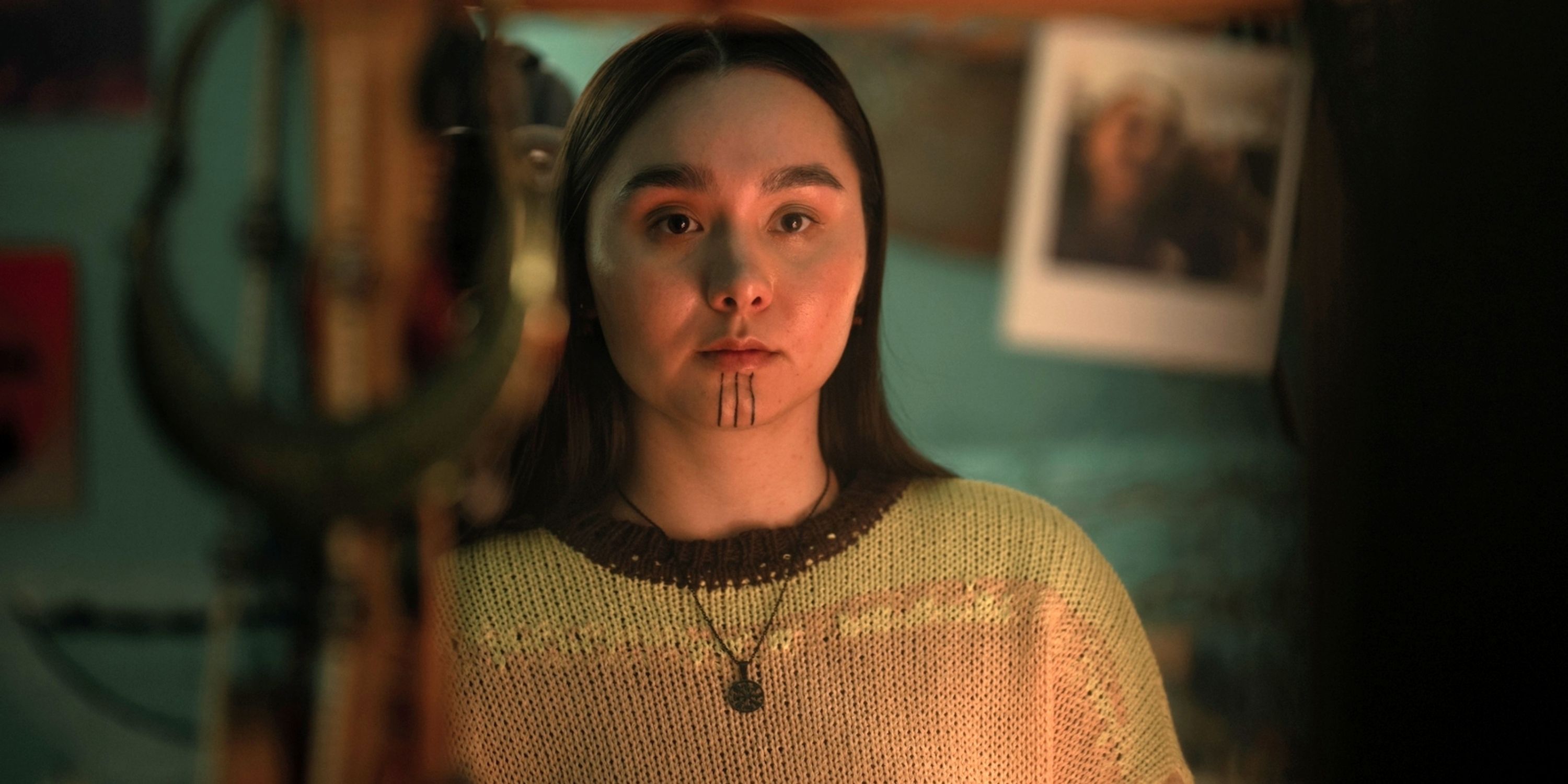True Detective is one of the most unusually successful programs in the history of HBO, as the series’ dramatic rise, fall, and rejuvenation are almost as exciting as the mysteries within the show itself.
The first season of True Detective, from director Cary Joji Fukunaga and writer Nic Pizzolatto, changed television forever by bringing massive movie stars Matthew McConaughey and Woody Harrelson to the small screen for a series that felt more cinematic than what was on the big screen. While the second and third seasons felt very underwhelming in comparison to Season 1, the franchise received a major bump in popularity thanks to the groundbreaking critical and commercial success of True Detective: Night Country. With Night Country writer/director Issa López set to return for True Detective Season 5, it’s time for the series to fully embrace its horror roots.
‘True Detective’ Is at Its Best When It’s Scary
While the series’ roots can be traced to the investigative thriller and the philosophy of Friedrich Nietzsche, True Detective has always had a strong association with the horror genre. On a visceral level, the freedom allotted for HBO shows to incorporate graphic content meant that True Detective’s first season was allowed to show the devastating reign of the “Yellow King” killer in full detail. The pursuit of serial killers is nothing new within the realm of crime fiction on television, but the immediacy of the violent content made the mission by Rust Cohle (McConaughey) and Marty Hart (Harrelson) feel more exciting. The violence is not included just for the sake of disturbing the audience; showing that these flawed characters needed to work together to stop a ruthless menace allowed True Detective to address its more ambiguous themes.
Although there’s a literal case that can be solved using logic, True Detective has always hinted at supernatural undertones. The series’ protagonists are often tough, cynical characters who believe that any underlying forces at play can be explained using practical evidence. However, mystery and horror often go hand-in-hand. In isolated scenes that lack a broader context, True Detective has succeeded in creating striking moments of horror that appear to be lifted straight from a ghost story. Given that the first season deals with cults, a serial killer, and the cyclical nature of time, there are also many horror themes that have nothing to do with the supernatural.
True Detective suffered a decline in quality when it attempted to break away from its horror roots. Compared to the Gothic mystery of the first season, True Detective Season 2 tells a baffling story about the corruption and degradation of an industrial city in California. Despite a strong performance by Colin Farrell, Season 2 proved to be far less interesting when it ignored the anxiety-inducing presence of a serial killer. It was the pessimistic philosophy, visceral moments of body horror, strange and upsetting narrative structure, and allusions to a deeper mythology that distinguished True Detective from other investigative procedurals.
‘Night Country’ Is the Scariest ‘True Detective’ Season Yet

While it certainly made up for some of the creative mistakes made by the previous two installments, True Detective: Night Country left many questions unanswered. However, True Detective: Night Country was at its best when it was focusing on the horror elements, as López clearly has a knack for creating prolonged moments of tension. Although the conclusion of the mystery itself left much to be desired, the series succeeded on a week-by-week basis because of the omnipresent sense of danger that surrounded the event in Ennis, Alaska. Through this horror influence, lead characters Liz Danvers (Jodie Foster) and Trooper Evangeline Navarro (Kali Reis) were forced to be more vulnerable.
Although it shares some stylistic similarities with previous installments, True Detective: Night Country was highly influenced by horror classics. The opening sequence of the series pays homage to the John Carpenter classic The Thing, and it is not just because it’s a snowbound mystery about a group of scientists slaughtered by a seemingly supernatural force; True Detective: Night Country addresses the danger of paranoia and fear of the unknown, which are both critical themes in the 1982 science fiction remake. Throughout the season, Liz is forced to question the motivations of the community’s most secretive members, whose attempts to hide the town’s violent past only create a more stressful situation. Considering how successful True Detective: Night Country was in drawing on the influence of iconic horror films, it would make sense for a fifth season to do the same thing.
‘True Detective’ Season 5 Needs To Distinguish Itself From ‘Night Country’

Adding more scares to the fifth season of True Detective would make sense considering that López is an accomplished horror filmmaker. She combined magical realism with commentary on the Mexican Drug War in her acclaimed 2017 film Tigers Are Not Afraid, which stood out as one of the most memorable horror debuts in years. Both Tigers Are Not Afraid and True Detective: Night Country became important pieces of representation through the incorporation of spiritual beliefs and the prominence of diverse characters. Horror is often a great genre to prop up unique perspectives, and it would be exciting to see True Detective Season 5 continue this trend.
While it was unquestionably a success for HBO in terms of its sizable audience, True Detective: Night Country proved that the franchise needs to break free of its own continuity. The unneeded references to an iconic line of dialogue from Season 1 only cemented True Detective in the past, rather than allowing it to pave a new path forward. True Detective is a series that benefits from subversion, and a full-on tilt into horror may yield its best results to date.



